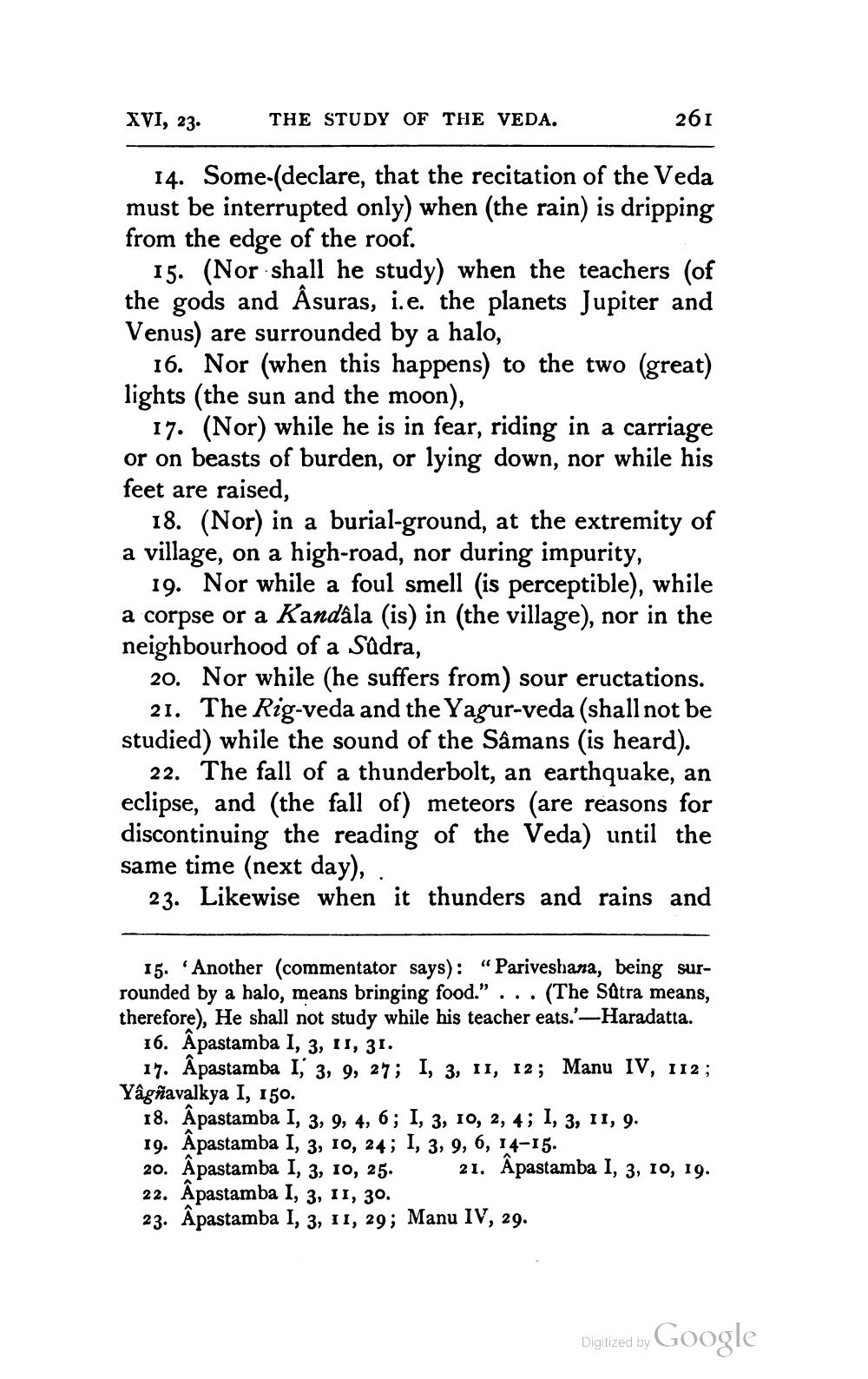________________
XVI, 23.
THE STUDY OF THE VEDA.
261
14. Some (declare, that the recitation of the Veda must be interrupted only) when (the rain) is dripping from the edge of the roof.
15. (Nor shall he study) when the teachers (of the gods and Asuras, i.e. the planets Jupiter and Venus) are surrounded by a halo,
16. Nor (when this happens) to the two (great) lights (the sun and the moon),
17. (Nor) while he is in fear, riding in a carriage or on beasts of burden, or lying down, nor while his feet are raised,
18. (Nor) in a burial-ground, at the extremity of a village, on a high-road, nor during impurity,
19. Nor while a foul smell (is perceptible), while a corpse or a Kandala (is) in (the village), nor in the neighbourhood of a Sudra,
20. Nor while (he suffers from) sour eructations.
21. The Rig-veda and the Yagur-veda (shall not be studied) while the sound of the Sâmans (is heard).
22. The fall of a thunderbolt, an earthquake, an eclipse, and (the fall of) meteors (are reasons for discontinuing the reading of the Veda) until the same time (next day), .
23. Likewise when it thunders and rains and
15. Another commentator says): “Pariveshana, being surrounded by a halo, means bringing food.” ... (The Sätra means, therefore), He shall not study while his teacher eats.'—Haradatta.
16. Apastamba I, 3, 11, 31.
17. Āpastamba I, 3, 9, 27; I, 3, 11, 12; Manu IV, 112; Yâgñavalkya I, 150.
18. Âpastamba I, 3, 9, 4, 6; I, 3, 10, 2, 4; 1, 3, 11, 9. 19. Âpastamba I, 3, 10, 24; I, 3, 9, 6, 14-15 20. Âpastamba I, 3, 10, 25. 21. Âpastamba I, 3, 10, 19. 22. Apastamba I, 3, 11, 30. 23. Âpastamba I, 3, 11, 29; Manu IV, 29.
Digitized by Google




